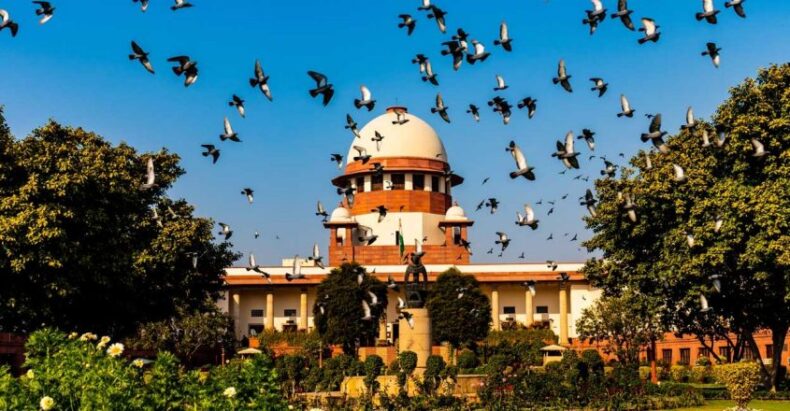The SC (Supreme Court of India) has requested a response from the government regarding a Public Interest Litigation (PIL) that seeks to remove the criminalization of consensual sexual activity among teenagers. The PIL argues that a significant number of girls under 18 and boys over 18 engage in consensual sexual relationships, but often the boy faces arrest on charges of statutory rape if the girl becomes pregnant and her parents file complaints with the police.
The Court has asked the government to address the application of a “Romeo-Juliet law” in India, which would prevent the arrest of a boy if his age is within four years of the girl’s age. Importantly, the Protection of Children from Sexual Offences (POCSO) Act considers the consent of minors (under 18) irrelevant, labeling any consensual activity as sexual assault. Similarly, Section 375 of the Indian Penal Code considers any sexual intercourse with a girl under 16 as rape, even if she has given her consent.
The PIL has been submitted by Harsh Vibhore Singhal, a lawyer, in his individual capacity.
A bench comprising Chief Justice D Y Chandrachud and justices J B Pardiwala and Manoj Misra has acknowledged the PIL and has issued notices to the Union ministries of law and justice, home affairs, and other relevant bodies, including the National Commission for Women.
The crux of the PIL is a call for the Court to issue a writ of mandamus under Article 32 or similar directions to utilize its authority under Article 142 to decriminalize statutory rape laws in cases of consensual sexual activity involving adolescents aged 16 to under 18, and also when one partner is above 18.
SC can use its powers on the case
A “writ of mandamus” is a legal remedy that can be sought from a court, specifically the Supreme Court of India in this context, under Article 32 of the Indian Constitution. Article 32 grants individuals the right to move the Supreme Court to seek enforcement of fundamental rights. It empowers the Supreme Court to issue directions, orders, or writs to government authorities, public officials, or bodies to perform their legal duties or refrain from acting in an unlawful manner.
If the Supreme Court decides to issue a writ of mandamus under Article 32 in response to the PIL, it could direct the concerned government authorities to take the necessary steps to address the issues raised in the PIL. The issuance of such a writ is a significant legal remedy and can have far-reaching implications on the interpretation and application of laws related to the matter at hand.

Article 142 of the Indian Constitution grants the Supreme Court of India special powers to do “complete justice” in cases where existing laws or legal provisions are inadequate. This article allows the Supreme Court to pass orders or issue directions to further the ends of justice, even if such orders may not be directly provided for in the existing legal framework. In other words, it empowers the Supreme Court to fill gaps in the law and take actions that are necessary to meet the requirements of justice in specific cases.
Under Article 142, the Supreme Court can issue orders that may go beyond the ordinary remedies available to the court. It enables the court to take innovative and exceptional measures to ensure justice is served.
The petitioner is likely arguing that existing legal provisions may be inadequate to fully address the complexities and nuances of cases involving consensual sexual activities among adolescents. By invoking Article 142, the petitioner is requesting the Supreme Court to go beyond the standard legal remedies and take measures that would ensure a just and fair resolution of the matter.
The PIL contends that adolescents in this age group possess the physical, psychological, and social capacity to understand and assess risks, make informed choices, and have the autonomy to decide about their own bodies. It emphasizes the need to empower these adolescents to engage in consensual activities without fear of legal consequences.
Regarding the Romeo-Juliet law, this legal principle provides a certain level of protection to those accused of statutory rape when the minor has consented to the sexual activity and the age difference between the minor and the accused is not significant. This law has been adopted in various countries. It contrasts with the previous situation where rape charges could be brought if the boy was an adult in cases of teenage sexual relationships.
The CJI bench points out the need to address this legal gray area and legislative gap by establishing guidelines that assess the consent of 16 to 18-year-olds before prosecuting consenting adults under statutory rape laws.













